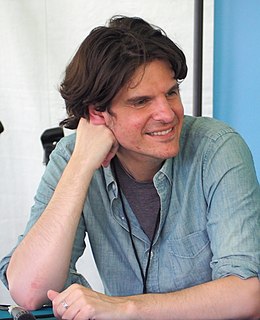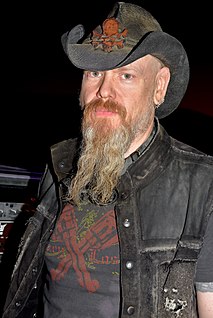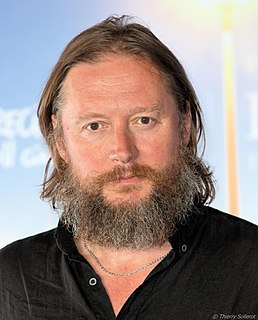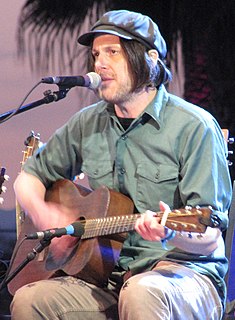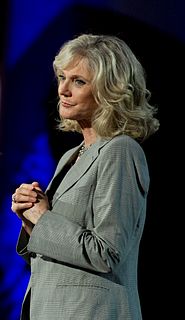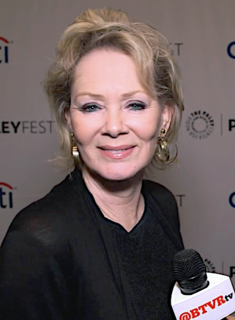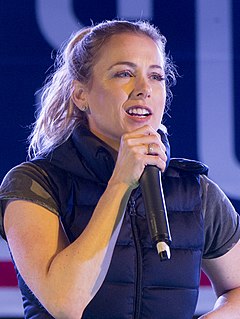A Quote by Alex Timbers
I worked on it [ Too Much Tuna] for a little bit downtown and it was a great experience. I couldn't believe how enthusiastic the audience was for it. It was just extraordinary. It felt like you were at a rock concert, which was just unusual for shows at Cherry Lane, which are usually intimate plays about big ideas, you know.
Related Quotes
I got an email from Nick [Kroll] that he and John [Mulaney] were looking to put on the stage show with two of their characters from Kroll Show and could I help at all. And they were doing it [off-Broadway] at the Cherry Lane and they had been performing it at UCB, just sort of testing it out. I worked on it for a little bit downtown and it was a great experience.
The great thing about writing for a younger audience is that they will give it to you straight with their responses. They'll tell you exactly what they liked and didn't like, and when they're enthusiastic, they're unashamedly enthusiastic. They'll talk to you about your characters as if they were real people, which is wonderful.
I think it's stripped down as far as electronics go, but we just wanted to write a record that we felt better represented how we sound live with more of a rock feel, which is the direction we've been heading. It's just an evolution of the band throughout the years. We worked on this record longer than any other record, so I don't know if "stripped down" is how I would put it; I think it is a little bit more raw sounding.
I've worked on other shows where the sense is like, "Well, don't change it too much," you know? But on this one [ Too Much Tuna], Nick [Kroll] and John [Mulaney] - beyond being amazing performers - are also writers, and wanted to keep improving upon the show, particularly the play within a play. I think the writing just got funnier and funnier.
I have a memory of this experience when I was young, watching 'Stop Making Sense,' the Talking Heads concert movie, which is one of the best concert movies ever, and I saw it in a full house in New Zealand, and everyone was cheering between songs, and you really felt like you were part of the audience at the gig.
I think the songs I was writing after Aeroplane were full of a lot of undealt-with pain that was just a little too big... the issues seemed too large for me to confront intuitively through songwriting. I kept pushing it and pushing it. There are so many issues about being human and why people inflict pain on each other. There were seeds of all these things I hadn't dealt with. With just the personal issues, I felt I was in over my head, but then to write about it... To write you have to have at least a little bit of confidence you know what you're talking about.
The one thing about kids is that you never really know exactly what they're thinking or how they're seeing. After writing about kids, which is a little bit like putting the experience under a magnifying glass, you realize you have no idea how you thought as a kid. I've come to the conclusion that most of the things that we remember about our childhood are lies. We all have memories that stand out from when we were kids, but they're really just snapshots. You can't remember how you reacted because your whole head is different when you stand aside.
Television is a completely different industry now. It's just extraordinary. It's so wonderful, because there's more interesting product. It attracts the best writers and directors. And one thing that's really interesting about it is that it used to be, if you were on a big network show, like it or not, you were a household face and name. And believe it or not, not all actors like that. That's not their goal. They just like being actors. And there are so many actors that are on hit shows that I have never seen, I've never heard.
